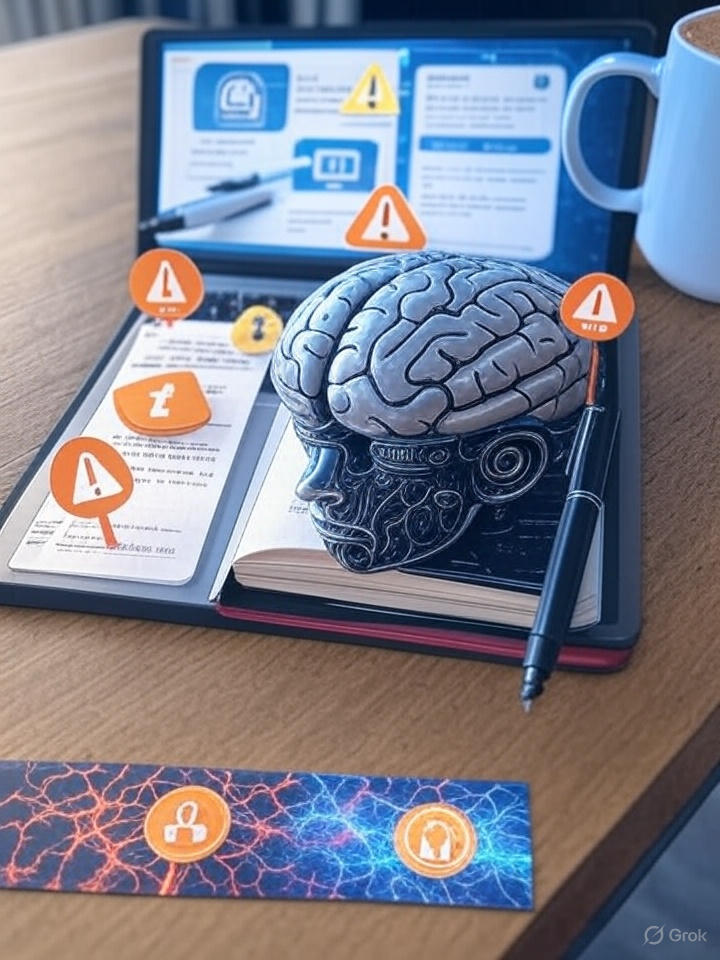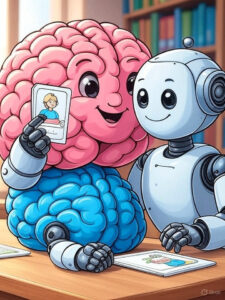: Top 10 Disadvantages of AI – Risks, Limitations & Ethical Concerns
Learn the top 10 disadvantages of artificial intelligence, including job loss, bias, privacy risks, and more. Plus, discover how to responsibly manage these AI challenges.
Introduction
Artificial Intelligence (AI) has brought incredible benefits—from automation to decision-making. But it’s not without its downsides. In this guide, like “AI data privacy security disadvantages” and “limitations of AI emotional intelligence.” We’ll include links to authoritative sources (Viki, Pediaa, Forbes Health) and an internal link to Can Artificial Intelligence Become Self-Aware?. Use this as a comprehensive resource to understand AI’s risks and how to address them responsibly.
1. Job Displacement and Unemployment due to AI

AI automation threatens routine and even complex jobs—manufacturing, customer service, data entry, crowdfunding platforms—all impacted. According to MIT economist Daron Acemoglu, unchecked automation “may excessively automate work, fueling inequality and pushing down wages” economics.mit.edu.
2. Algorithmic Bias and Fairness
AI systems learn from biased historical data, perpetuating discrimination in hiring, lending, and policing aitoolfor.org. Lack of diverse teams worsens this.
3. Lack of Transparency (Black‑Box AI)
Many AI models are “black boxes,” offering decisions without explainability aitoolfor.org+1builtin.com+1. This opacity erodes trust.
4. Data Privacy & Security Risks
AI requires massive data, making systems vulnerable to breaches and adversarial attacks ranktracker.com+15arxiv.org+15ndash.com+15.
5. High Cost and Low ROI
Setting up AI infrastructure—hardware, storage, experts—can lead to high costs with limited returns marketinginsidergroup.com.
6. Limited Emotional Intelligence
AI lacks empathy and human nuance—failing at emotional or context-sensitive interactions ndash.com+8marketinginsidergroup.com+8geeksforgeeks.org+8.
7. Ethical Concerns and Manipulation
Deepfakes, surveillance, AI-powered weapons, and political manipulation pose ethical threats builtin.com+1ibm.com+1.
8. Technological Dependence and Skill Loss
Reliance on AI can erode human cognitive skills—from basic navigation to decision-making informatecdigital.com+1ndash.com+1.
9. Risk of Low-Quality AI Content (AI Slop)
AI-generated content (“AI slop”) risks flooding the internet with repetitive, shallow, or misleading content en.wikipedia.org.
10. Unpredictable Self-Aware AI
The specter of self-aware AI—even if hypothetical—raises fears of uncontrollable intelligent systems. Some experts urge regulation now .
Strategies to Mitigate AI Disadvantages
- Implement Explainable AI (XAI) — increase transparency.
- Bias audits & diverse teams — reduce discriminatory outcomes.
- Data encryption & security protocols — safeguard privacy.
- Reskilling programs — offset job loss with new skill training.
- Ethical AI governance — include accountability in deployment.
- Human-in-the-loop frameworks — maintain oversight and judgment.
External Resources for Further Learning
- Viki: Community insights on ethical AI and human impact.
- Pediaa: Explainers like “algorithmic bias” and “black‑box AI”.
- Forbes Health: Analysis of AI in healthcare and human-machine dynamics.
FAQs
Q: Will AI take all jobs?
Not all, but many repetitive roles are at risk—reskilling is key for the future.
Q: Can AI be unbiased?
Complete neutrality is difficult. Ongoing bias audits and fairness tools are essential.
Q: How secure is AI?
Security varies—data leaks and adversarial hacks are real. Best to treat it like any cyber‑risk.
Conclusion
AI revolutionizes industries—but isn’t flawless. Job displacement, biased decisions, privacy challenges, and future ethical dilemmas require proactive oversight. By adopting XAI, training the workforce, tightening data security, and fostering ethical governance, we can harness AI’s power responsibly.
👉 Got concerns about AI in your workplace or life? Share your thoughts below, and don’t forget to explore whether AI could become truly self-aware in our detailed Can AI Become Self-Aware? article.





Pingback: 🧠 What Level of AI Is ChatGPT? - Snapspeak